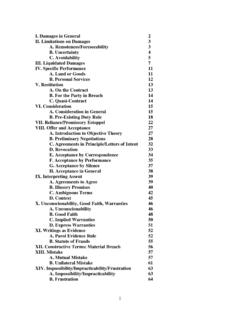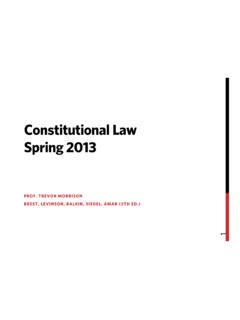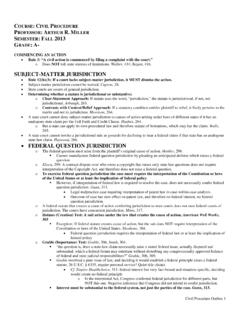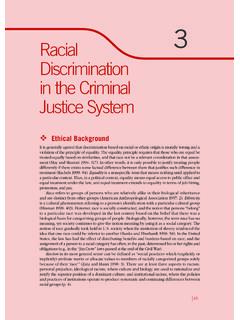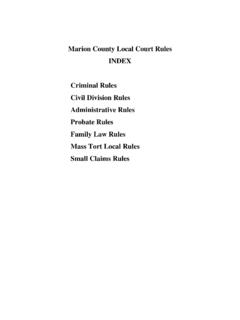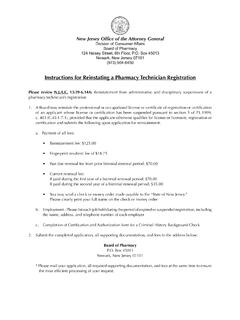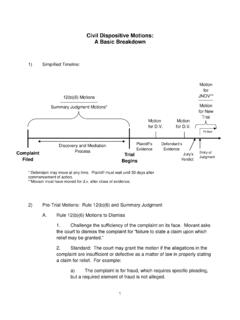Transcription of Current Directions in Psychological Jury Decision Making ...
1 jury Decision Making : ImplicationsFor and From PsychologyBrian H. Bornstein1and Edie Greene21 University of Nebraska Lincoln and2 University of Colorado Colorado SpringsAbstractJury trials play a centrally important role in the law, and they are alsoof interest to psychologists. The manner in which individual jurorsperceive, interpret, and remember evidence, as well as the group processes involved in jury deliberation, can be described in terms offundamental cognitive and social Psychological concepts. Juries provide a real-world laboratory for examining theoretical issues relatedto reasoning, memory, judgment and Decision Making , attribution, stereotyping, persuasion, and group behavior.
2 Conversely, psycho-logical research can inform trial procedures, enabling juries to benefit from fairer procedures and reach better outcomes. Thus, jurydecision Making has implications for Psychological theory, and Psychological research has implications for legal , Decision Making , public policyThe jury is a unique institution: It requires ordinary citizenswho lack legal training to hear evidence, make sense of con-flicting facts, and apply legal rules to reach a verdict aboutwhich all (or sometimes just most) jurors can agree. Althoughonly a small and diminishing proportion of legal disputes areultimately resolved by jury trial, thousands of cases are stilldecided by juries each year, and predictions about potentialverdicts influence decisions to settle civil lawsuits and to offerand accept plea bargains in criminal cases.
3 Thus, jury trialsassume a role of central importance in the also interest psychologists who examine howindividuals perceive, interpret, and remember evidence andthe ways they reach consensus with others. Juries provide areal-world laboratory for examining theoretical conceptsrelated to reasoning, memory,judgment and Decision Making ,attribution, stereotyping, persuasion, and group , Psychological research can inform trial proce-dures. Thus, jury Decision Making has implications for psy-chological research and vice , no other institution so thoroughly entrustscitizens to govern themselves.
4 Many countries (includingAustralia, Canada, England, Wales, Ireland, New Zealand,Korea, Scotland, Spain, Japan, Russia, and the United States)use juries in criminal cases, and some do so in civil cases the United States, if selected persons meet minimal require-ments concerning citizenship, age, literacy, and residency, theytake their turn as jurors. Ironically, though, the democratizationof jury service has also led to controversy about jurors abilityto deliver justice fairly and predictably. Among the concernsare that laypeople are ill equipped to handle complex evidence,that they are swayed by sympathy, and that they award extrava-gant sums of money for frivolous claims (Greene, 2009).
5 These criticisms, along with extensive media coverage ofsensational cases, have led to claims of jury incompetence andcalls for reform (for review, see Bornstein & Robicheaux,2008). Although it is important to strive to improve jury perfor-mance, our position is that the glass of jury behavior is alreadyhalf full (Greene & Bornstein, 2003). That is, we believe thatempirical data show that juries generally do a good job ofweighing the evidence and applying the law. Furthermore,when they occasionally err, they do so in ways that reflectwell-documented, universal Psychological principles such asheuristic reasoning and attribution on jurors and juries affords the opportunity to con-duct basic and applied research simultaneously, and juries are anatural laboratory for examining individual Decision Making aswell as group dynamics.
6 Research can focus on decisionpro-cesses( , attribution, hypothesis testing), as well as decisionoutcomes( , verdicts). In addition, the findings can be usedto inform real-world policies and procedures, such as improv-ing jury instructions or deciding whether to allow jurors to askquestions of witnesses (Greene & Bornstein, 2000).Corresponding Author:Brian H. Bornstein, Dept. of Psychology, 238 Burnett Hall, University ofNebraska Lincoln, Lincoln, NE 68588-0308E-mail: Directions in PsychologicalScience20(1) 63-67 The Author(s) 2011 Reprints and : the remainder of this article, we discuss how to assess jurorand jury decisions; some of the Psychological processes involvedin jurors and juries Decision Making ; and several key findingsregarding their behavior, linking those results to both fundamen-tal Psychological principles and legal procedures.
7 We concludewith some future Directions and recommendations for improvingjury performance in light of what psychology can jury DecisionsThe greatest difficulty in assessing jury decisions from eithera Psychological or a legal perspective is the impossibility, inmost cases, of knowing whether the jury reached the right verdict. Occasionally, subsequent evidence comes to light( , DNA evidence, a confession, a damning internal memo),but such instances are rare. Convicts protestations of inno-cence notwithstanding, there is no way to tell short of DNAtesting in the small percentage of cases in which such evidenceexists whether they actually committed the crime.
8 Civil casesare arguably even more problematic, as the issues involve mat-ters of degree ( , How careless was the defendant s conduct?How much money would fairly compensate the plaintiff?).The question, then, is usually not whether the jury reachedthecorrectverdict, but whether the verdict was reasonable inlight of the evidence and the law. Consider, for example, Simpson s criminal trial for the murders of Ronald Goldmanand Nicole Brown Simpson: Was the jury s acquittal of Simpsonthe optimalverdict? Many if not most observerswould say prob-ably not. But did jurors reach a reasonable verdict?
9 Almost cer-tainly yes, inlight ofevidentiary inconsistencies, allegationsofpolice misconduct, and the very high standard of proof. Becausejury trials are, by definition, close cases otherwise, they aredropped, settled, or plea bargained almost all verdicts are goingto be reasonable. How then to assess jury performance?There are three (and possibly more) answers to this question,all of which have Psychological implications: comprehension,reliance on evidence, and comparison to expert decisionmakers. Jurors comprehension especially of judges instruc-tions is generally poor. Performance varies depending on thesubject matter and testing format, but figures under 50%are notuncommon.
10 Such findings have led the American Bar Associ-ation to advocate rewriting instructions, an effort that manyjurisdictions have undertaken. Of course, comprehension mea-sures are not an ideal proxy for performance; comprehensionmay be good, but it might not translate into accurate judgments;or jurors might reach good decisions despite poor comprehen-sion. Thus, better comprehension does not necessarily meanbetter second way of assessing jurors performance is to askwhether they rely properly on legal evidence. For example,do they use evidence they are supposed to use and ignoreinformation they are supposed to ignore (often referred to as extralegal evidence)?



